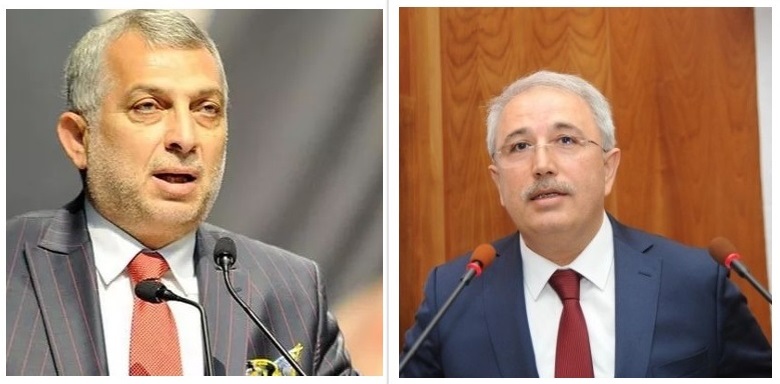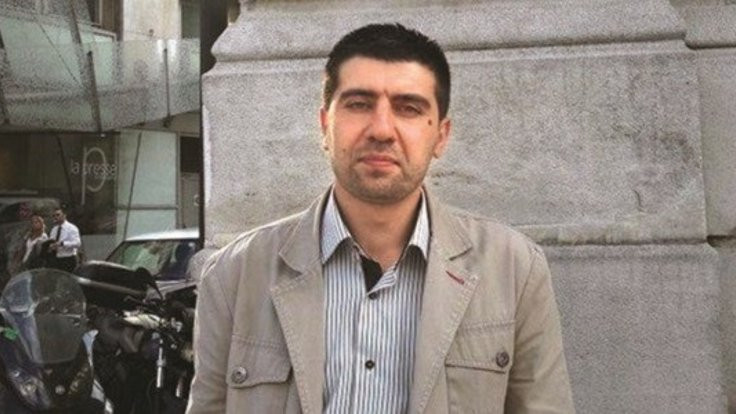It has been ten years since a gunman allegedly linked to Turkish intelligence killed three female Kurdish activists, including Kurdistan Workers’ Party (PKK) founding member Sakine Cansız, in Paris.
The murders remain unresolved after the gunman died in prison in 2016, a month before his trial was to begin.
Journalist and author Fuat Kav has written an article in two parts for MedyaNews, detailing suspicions and documents related to political murders and attacks Turkey has allegedly organised against the Kurds in Europe over the last decade.
Read below the second part of Kav’s exclusive article about the recent activities organised by the Turkish deep state, their assassinations and the route that led to the killing of six Kurdish people in Paris.
Part one is available here.
Fuat Kav
Sharing a common political background and career with Erdoğan, and in addition to this, knowing Europe very well, Külünk was assigned to the darkest affairs of Turkish deep state in the continent. (There are strong allegations that he is being monthly paid ten thousand USD by the Turkish mafia leader Sedat Peker). Thus, he became the person playing the primary role in the formation of the hit squads in Germany, as well as the so-called “Germany Ottomans” gang and its involvement in various murders by dirty relations.
Identified as a criminal profile by the German prosecutors, Külünk is primarily responsible for the arson of Kurdish institutions and the assassinations in Europe. He has committed crimes of providing money, weapons and other support to “Germany Ottomans” and all this information is available in the indictments and police reports prepared by the German prosecutors.
The secondary name chosen by Erdoğan and Fidan was Muhammed Taha Gergerlioğlu, who had served as Erdoğan’s advisor when he was the prime minister, and also, according to Der Spiegel, as Fidan’s assistant in MIT. Describing him as “Erdoğan’s shadow fighter”, Focus magazine once published an comprehensive article with the headline “Here’s how Erdoğan spies on his opponents in the middle of Germany”, asserting “a person named Taha Gergerlioğlu, Erdoğan’s former adviser, spies on the Gülen religious movement, Kurdistan Workers’ Party (PKK) and Revolutionary People’s Liberation Party/Front (DHKP/C) in Germany on behalf of Erdoğan.”
Although Erdoğan angrily declared that those allegations were not true, the magazine was offering concrete evidence to prove its claim. Moreover, Gergerlioğlu was already caught with documents of probative value, consisting of pages of notes and recordings of thousands of phone calls.
During Gergerlioğlu’s trial, Der Spiegel magazine wrote the German intelligence agency was concerned that the case might reveal links to the assassination of three PKK member women in Paris. What is interesting is why the German intelligence organisation would be worried if Gergerlioğlu’s connection to the first Paris killings would be revealed.

Being Erdoğan’s advisor and MIT Deputy Secretary, and brought before judge on Koblenz State Court in September 2015 with these very titles, Gergerlioğlu is a key figure. The prosecutor’s office had confirmed he had made 4,000 phone calls, of which 1,000 were for spying activities in Germany. In the 40-page indictment, his mission was described as:
“The accused Gergerlioğlu is an travelling executive member of the Turkish intelligence (MIT). As an executive, Gergerlioğlu has been overseeing and managing a complex network of informal intelligence officers. He has been serving as an intelligence agent, meeting with several sources such as (…) in Germany, gathering information about those spied on and forwarding this collected information to people within the Turkish security system.”
All of Gergerlioğlu’s activities were deciphered. Among the phone calls and correspondence detected by the German police, the most striking data were:
“- On 9 April 2014, Aziz Ateş, an imam of Turkish-Islamic Union for Religious Affairs (DITIB) from Bielefeld, sends photos taken at an Ezidi demonstration to Gergerlioğlu via WhatsApp.”
“- Göksel Güler, partner of the front company founded by Gergerlioğlu, sends photos taken at a demonstration in Mannheim, held in the name of Sakine Cansız, Fidan Doğan and Leyla Şaylemez.”
According to the documents captured on him, Gergerlioğlu and his team had been in charge since 2011. The information provided by the espionage network was gathered and extracted in this front company and sent to the capital Ankara. Moreover, thanks to this company, Gergerlioğlu was able to reside in Germany without let or hindrance. On the other hand, his field of activity was not limited to Germany.
Gergerlioğlu’s passport, which was on him at the time of his detention, showed that he had been frequently travelling to United Kingdom, Saudi Arabia, Egypt, Lebanon, Slovenia, Bulgaria, United Arab Emirates and Greece, while his main route in Germany included Bonn, Bochum, Stuttgart, Frankfurt and Cologne.
It was no coincidence that Muhammed Taha Gergerlioğlu was chosen for Erdoğan’s intelligence affairs in Germany while he was serving as an advisor to him. His grandfather Abdurrahman Efendi was an advisor to the Ottoman sultan Abdulhamit II, who Erdoğan likes to identify himself with.
“I am an MIT agent”
On the other hand, in the first hearing of the case against Mehmet Fatih Sayan, who allegedly had plotted assassination plans against Kurdish politicians in Germany, confessed to working for the MIT and was stated to be involved in espionage activities, he confessed, saying, “I am an MIT agent, I was assigned to monitor the Kurds in Germany.” Mehmet Fatih Sayan was also a hitman affiliated with the Gergerlioğlu and Metin Külünk team.
In the summary of indictment, the prosecutor’s office stated that Sayan had been working for Turkish intelligence since 2013.
Mehmet Fatih Sayan, who was a spy under his journalist identity, was arrested and tried on the grounds that there was an assassination plot against KONGRA-GEL Co-Chair Remzi Kartal and KCD-E Co-Chair Yüksel Koç. When he was caught by the German police, Mehmet Fatih Sayan, who confessed that he had been an agent for the MIT in Hamburg for a long time, stated that he received £30,000 for his acts. In the court, he said: “I am an agent, I monitored the Kurds, spied on their associations, took photos at rallies and marches and sent them to relevant persons, I followed Kurdish politicians by interviewing with them as a journalist. But I am not a hitman.”
The Belgian assassination squad was also exposed
Photographs of former Turkish soldier Zekeriya Çelikbilek, who was caught while exploring to assassinate KONGRA GEL Co-chair Remzi Kartal and KCK Executive Council Member Zübeyir Aydar, were found at the Presidential Palace and the Paris Embassy.
The Turkish Ambassador to Paris and former MIT Deputy Under-secretary İsmail Hakkı Musa, who played a prominent role in the 2013 assassinations along with several arsons, allegedly resigned from his duty after Çelikbilek’s photos were exposed.
According to a story in Özgür Politika newspaper, French citizens Zekeriya Çelikbilek and Yakup Koç, who were detained in June 2017 for allegedly exploring in front of the Kurdistan National Congress (KNK) building in Brussels, had close relations with the Turkish Embassy in Paris.
The French newspaper Le journal Du Dimanche wrote that the investigation conducted in Belgium uncovered that the actions of the assassination team in Europe were co-ordinated by İsmail Hakkı Musa.
According to the information received from the sources conducting the extensive investigation; after the assassination team under İsmail Hakkı Musa, one of the three top officials of the MIT, was ‘busted’, the two of them chose to cooperate with the Belgian police. While the investigation was continuing, Ambassador Musa, who was also the coordinator of the Paris assassinations, was withdrawn from Paris.
Had the first Paris murders been clarified, the second Paris killings would not have taken place
If Germany had deepened Gergerlioğlu’s investigation a little more, the assassinations of Sakine Cansız, Leyla Şaylalmaz and Fidan Doğan would have been clarified. However, Germany and France did not want to shed light on the Paris assassinations.
For this reason, Ömer Günay, who was responsible for the 2013 assassinations, was eliminated in a hospital even though he was a member of the MIT and was used as a hitman by the MIT.

Because of the first Paris murders were not enlightened, the second Paris murders took place. Both killings indicated that the deep forces of Germany and France and the Turkish gladio work together, act together, commit murders together.
The Turkish MIT runs wild around Europe, organising, monitoring and threatening the opposition: In some countries, people are kidnapped and taken to Turkey. Almost every day, Kurdish associations are set on fire. It is unthinkable that the intelligence forces of these countries were not aware of it.
The French deep state is absolutely aware of both Paris killings. However, it does turn a blind eye due to its interests; French prosecutors and judges, politicians and bureaucrats are complicit for various reasons.
In this sense, France’s position is cloudy. The country is in a position of complicity with the Turkish state because it did not clarify the first Paris assassinations, even obscured it, and concealed the file as a “state secret”. The second Paris massacre is a great test for the French state, as well as a great opportunity to get rid of the blame. We’ll wait and see.
Fuat Kav is a political activist, journalist and author. His memoirs on the notorious Diyarbakır Prison were published in the 2011 novel Blue Ring.










